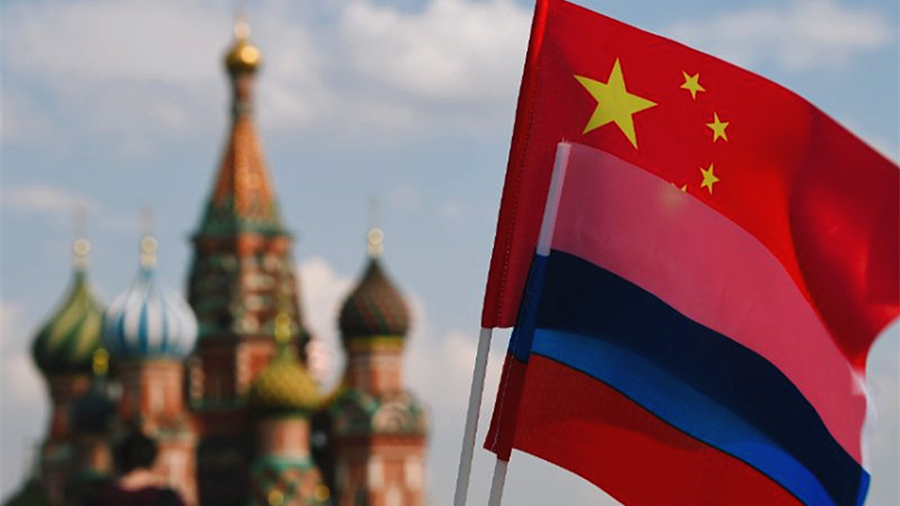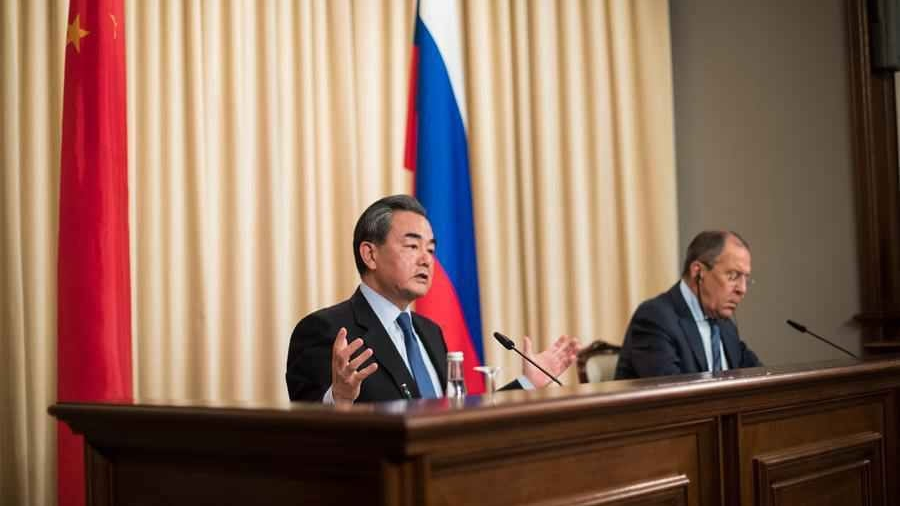
The national flags of China and Russia are seen on Red Square, Moscow. /Xinhua
The national flags of China and Russia are seen on Red Square, Moscow. /Xinhua
Editor's note: Andrew Korybko is a Moscow-based American political analyst. The article reflects the author's opinions and not necessarily the views of CGTN.
Russian Foreign Minister Sergei Lavrov kicks off his China visit Monday. This comes at a crucial time as the China-U.S. dialogue in Anchorage, the first high-level diplomatic interaction between the two countries since U.S. President Joe Biden's inauguration, only yielded very tepid results.
The visit also occurs against the backdrop of a sharp downturn in Russian-American relations after the Office of the Director of National Intelligence released a report alleging that Russia meddled in last year's elections and Biden agreed with an interviewer that Russian President Vladimir Putin is a "killer."
The challenges that China and Russia each have with the U.S. aren't reflected in their relations with one another. To the contrary, Chinese-Russian ties have reached a New Stage of Comprehensive Strategic Partnership of Coordination since 2014, a pivotal year which marked the onset of both an ever-worsening security situation in the South China Sea for China and the "Ukrainian crisis" for Russia.
It's important to point out that both regional provocations were the result of American meddling aimed at seriously complicating matters for those two countries, but Washington's simultaneous hybrid war onslaught against their interests inadvertently drove them closer together.
So close are Chinese-Russian relations nowadays that Moscow is helping Beijing construct a missile-attack warning system and the two recently agreed to jointly establish a lunar base sometime in the future as they expand their space cooperation. They also regularly participate in multilateral military drills.
Not only that, but they extended their missile notification deal for another 10 years last December whereby they'll continue to inform one another every time they conduct ballistic missile or space launches, showing their deep level of trust.
To be absolutely clear, Chinese-Russian cooperation isn't aimed against any third parties, not even the U.S. despite what some American commentators wildly speculate. Their ties are purely purposed on the win-win philosophy that both countries proudly embrace, and they'd theoretically expand their cooperation into a trilateral format with the U.S. provided that Washington had the political will to treat them as equals as they deserve.
Regrettably, no such intention presently exists on the U.S. side of the strategic equation since the country's policymakers are held captive by their paranoid zero-sum outlook on international relations.
Considering this context, it can be expected that a new round of information warfare might soon be launched by Western mainstream media outlets speculating on the purpose of Lavrov's upcoming visit to Beijing. It wouldn't be surprising if they claim without any evidence whatsoever that it's part of some secret plot to undermine the U.S.

Chinese State Councilor and Foreign Minister Wang Yi (L) speaks during a joint press conference with his Russian counterpart Sergei Lavrov following their meeting in Moscow, May 26, 2017. /Xinhua
Chinese State Councilor and Foreign Minister Wang Yi (L) speaks during a joint press conference with his Russian counterpart Sergei Lavrov following their meeting in Moscow, May 26, 2017. /Xinhua
The reader must remember that the U.S. has always traditionally framed certain countries as the so-called "other" in a misled attempt to justify its aggressive actions in the eyes of its own people. At present, the U.S. officially regards both China and Russia as different types of strategic threats.
This observation leads to what might become an irresistible "opportunity" for American perception managers to proverbially "kill two birds with one stone" by fearmongering about both of them at the same time. The average media consumer should therefore be on high alert for this potential propaganda push.
The U.S. is struggling under the weight of its mismanaged response to containing the COVID-19 pandemic as its economy continues to falter and public discontent gradually rises. The American elite needs an international distraction now much more than ever, hence the risk that they'll launch another round of information warfare really soon.
By contrast, everyone can expect China and Russia to behave responsibly as always, emphasizing their commitment to win-win cooperation and showing the world how mature powers handle international relations. Instead of threats, fearmongering and speculative reports, these two countries support mutually beneficial ties with everyone, encourage the international community to remain hopeful about the future and always rely on facts when making official statements.
The world can therefore learn a lot from Lavrov's visit to Beijing, especially American policymakers who'll be paying closer attention to his trip.
(If you want to contribute and have specific expertise, please contact us at opinions@cgtn.com.)

